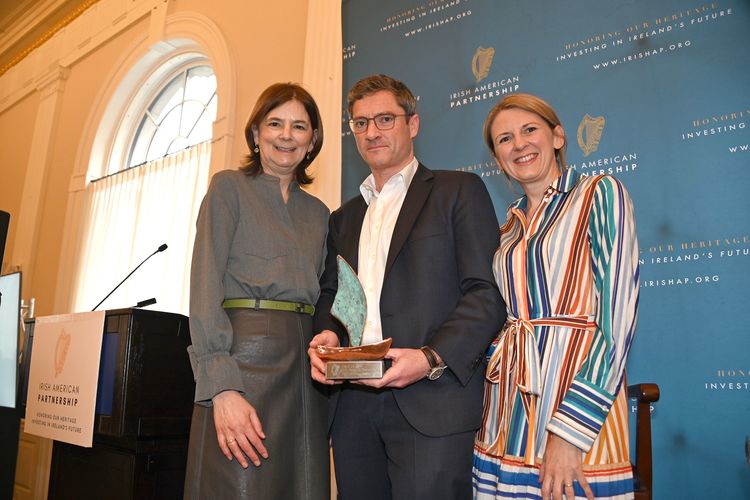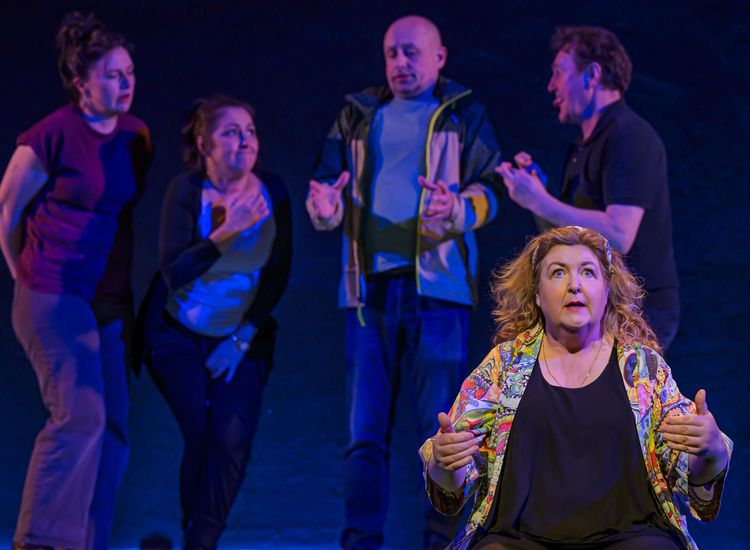[caption id="attachment_69776" align="aligncenter" width="600" caption="Wellington Mara"]
The Giants Super Bowl win was a showcase for people like Eli Manning and Justin Tuck, but for some of us who grew up on Big Blue, this latest championship was yet another reminder of just how splendidly the Mara family conducts itself in the rough-and-tumble business of professional football.
The Maras are, of course, NFL royalty. They founded the Giants in the 1920s and have operated the team as a family business ever since.
Along with the Rooneys, who own the Pittsburgh Steelers, the Maras are among Irish America's greatest contributions to the obsession known as the National Football League.
The two families have also made a significant contribution to American popular culture as well in the person of the young actress Rooney Mara, granddaughter of two of the NFL's most-revered owners.
Wellington Mara, whose father, Tim, founded the Giants and who was the team's patriarch for nearly a half-century, has been gone for six years now, but his presence still is evident in the way the team conducts itself, both on and off the field.
Mara created the Giants' way of doing business, and if you wonder what that means, you need only observe the quarterback-head coach duo of Eii Manning and Tom Coughlin. Neither will ever be accused of ducking hard work, embarrassing the team, or calling undue attention to himself.
In other words, the Giants offer an interesting contrast to some of football's preening, look-at-me characters, including one fellow with an Irish name who coaches another New Jersey-based New York team.
The Mara formula has been as successful as it is low-key. If you're counting - and I certainly am - the Mara family now has eight National Football League championships to their credit.
Eight? Yes, that's right. Sure, the media all noted that the Giants win over New England marked the team's fourth Super Bowl title. But for those of us whose memories stretch back to the days when the NFL championship was simply, well, the NFL championship, all this talk about Super Bowl titles obscures just how successful the Maras have been, and how important they remain as a symbol of continuity in a culture that worships change.
The Giants were good before the Super Bowl; they won four championships before the Super Bowl era, and, save for a rough patch from the mid-1960s to the early 1980s, they remain one of the NFL's great teams.
Generations of Irish-Catholic kids throughout the northeast - even in New England, back in the days before the Patriots arrived on the scene - were raised on Big Blue in part because of the Maras and their abiding commitment to faith and community.
Growing up in New York in the 1960s, I followed two football teams: the Giants, and Notre Dame. No need to wonder why. When I was very young
and terribly innocent, I was shocked to learn that most of the Giants played their college ball at schools other than Notre Dame. How could that be?
Conflating ethnicity, faith, and sports might seem a little odd, although there's plenty of precedents for these kinds of loyalties, as fans of Celtic F.C. surely know. The Yankees of the 1940s built a large Italian-American fan base thanks to the presence of stars such as Joe DiMaggio, Yogi Berra, Phil Rizzuto, and others.
The Mets seemed to be doing the same with the New York area's growing Latino population, but their less-than-stellar accomplishments recently may have inspired fans (of all sorts) to look elsewhere.
The Giants attracted, and retain, a base of Irish-Catholic fans because of the Mara mystique. How many times has one Giant fan told another of Wellington's commitment to Catholic charities, or his devotion to his faith?
Do you become a fan of a particular team just because the owner seems like a good guy? In the case of many Giants fans, the answer was, "yes."
Truth be told, the Giants fan base is a good deal more diverse than it used to be, and that's a good thing. And the Mara family hasn't owned the Giants outright since 1991, when one branch of the family sold their fifty percent stake in the team to the late Bob Tisch. It has been a match made in football heaven because the Tisch family exudes the same qualities that have made the Maras so appealing for so many years.
Still, through all the changes in the game and in the larger culture, the Giants have stood for something larger than wins and losses. As a team, they have stood for a certain graciousness and humility which seems all too rare in American sports today.
Credit the Mara family with establishing the Giants way of doing business, and credit today's players and the Tisch family with nurturing that legacy.










